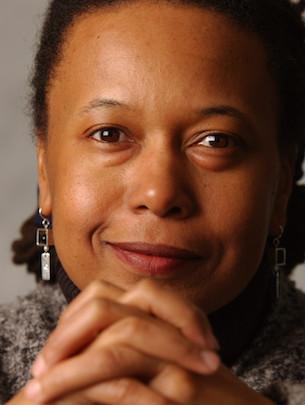UChicago political scientist Cathy Cohen named Carnegie Fellow
This article was originally published by UChicago News. Read the story on their site here.
Prestigious $200,000 fellowship will support GenForward Survey, new book project.
What do young Americans think about today’s most pressing problems? And how should their answers help shape the country’s policies and programs?
Those are the sorts of questions that Prof. Cathy Cohen has explored for years. Now, the renowned University of Chicago political scientist has received an Andrew Carnegie Fellowship to help fund her work. The fellowship comes with a $200,000 prize, which she plans to use to support GenForward—a first-of-its-kind survey of adults under the age of 36—and the writing of a new book.
A leading scholar on race and politics, Cohen founded the GenForward Research Project in 2016 because she saw a glaring absence of research on the attitudes and actions of young adults, especially those of color. Since then, the project has gathered quantitative and qualitative data on youth in Chicago and across the country, polling and interviewing them on everything from education to immigration to racism.
In fact, GenForward has just completed a new survey on how young adults—in particular, young adults of color—are experiencing and thinking about the COVID-19 pandemic. Results of that survey are forthcoming.
Cohen’s scholarship has helped undo the myth of a millennial monolith—exposing how the lived experiences of young people vary according to important characteristics such as race/ethnicity, gender and space, and how those experiences affect how their political and social priorities.
“I am especially interested in the idea of vulnerability among these emerging generations, since our GenForward data suggest that many feel unstable economically, socially and politically,” said Cohen, the David and Mary Winton Green Distinguished Service Professor of Political Science.
Her forthcoming book, tentatively titled Race, Rage and Vulnerability: Young Adults and Democratic Futures, will focus on how that sense of vulnerability shapes their politics—and, by extension, the coming decades of American democracy. Those feelings, she said, have emerged out of a series of disruptions in the lives of young adults, from the 2008 recession to the current coronavirus pandemic.
Cohen also will use Carnegie Fellowship funds to help run the GenForward Survey, as well as to convene junior scholars and graduate students who can use that data to further their studies on race and ethnicity.
 THE UNIVERSITY OF CHICAGO
THE UNIVERSITY OF CHICAGO


